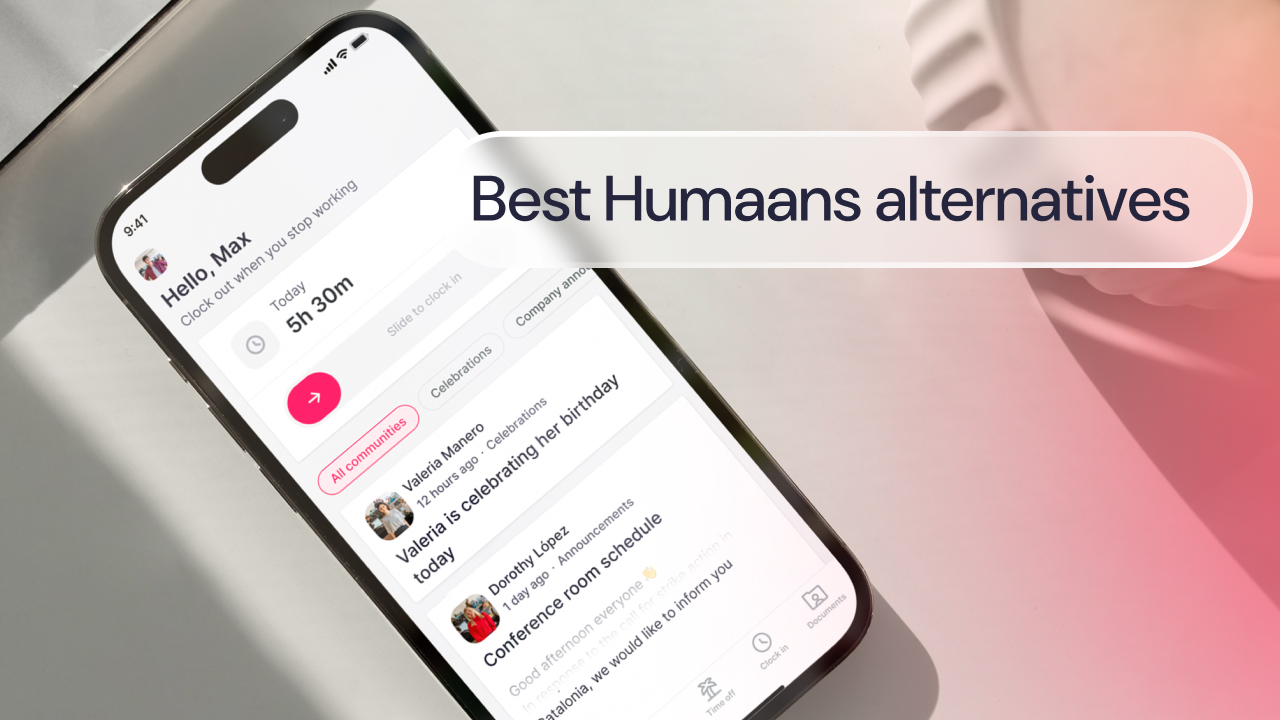A career in HR can be an immensely rewarding and fulfilling experience. If you work in HR you are responsible for supporting the development of employees and contributing to the strategic growth of a company. A job in HR can also offer a wide range of opportunities for variety and career progression.
If you are considering stepping into the world of Human Resources, you might be wondering how to get into HR, how to become an HR manager, and how to get experience in HR. Do you need a CIPD to work in HR? What about a university degree?
In this in-depth guide, we will share everything you need to know to get you started. We will talk about qualifications, experience and how to start a career in HR. We will also discuss what it takes to become an HR consultant and share some best practices to help you become an effective, influential and successful HR manager.
- Why Work in HR?
- Qualifications Needed to Work in HR
- How to Start a Career in HR
- Advice: How to Get Work Experience in HR
- Road Ahead: How to Become an HR Consultant
- Tips: How to Get into HR Jobs
- Best Practices: How to Become a Good HR Manager
- How Much Do HR Managers Earn?
✅ Download Your Free Payslip Template
Why Work in HR?
There are many reasons to work in HR. Working in HR can be very rewarding as you are able to influence many aspects of the organisation and you are in a unique position to drive positive change. Most of your day will be spent interacting with employees so it is important to be good with people. You need to care about the well-being and development of your employees and manage relationships at every level of the company. A company is only as good as its employees, and its employees are only as good as the HR team supporting them.
Work in HR can also be very varied and interesting. You might be working on recruitment and onboarding one day, and training and organisational development the next. You are responsible for creating employee policies to ensure regulatory compliance, as well as managing employee payroll, timekeeping, and performance management processes. You will also find yourself spending much of your day dealing with employee relations, team building and conflict resolution. Every day is different.
And the best part? HR specialist jobs are expected to increase in demand by 8% by 2022. HR plays a fundamental role in organisations, and there will always be a need for HR professionals.
Qualifications Needed to Work in HR
Contrary to popular belief, you don’t always need a university degree to work in HR. Depending on the industry and size of the company, it is sometimes possible to get work experience in HR as a way to get your foot on the ladder. However, a degree might improve your chances of getting your dream job, especially if it’s in business management, economics, finance, HR or psychology. Some universities also offer foundation degrees (FDA) in human resource management (HRM), although they are usually combined with business degrees.
Gaining a Chartered Institute of Personnel and Development (CIPD) qualification is another good route to get work in HR. It gives you knowledge and skills based on international standards, and you can tailor your curriculum according to your specific skills. A CIPD qualification can also help you build your reputation and connect you to a large network of professionals, helping you to make the right connections to find work in HR.
There are five qualifications to choose from, from Foundation level to Advanced:
- Foundation Certificate in People Practice
- Associate Diploma in People Management
- Associate Diploma in Organisational Learning and Development
- Advanced Diploma in Strategic People Management
- Diploma in Strategic Learning and Development
CIPD qualifications are delivered by Study Centres around the world. Find your nearest centre with the CIPD Centre Finder tool.
How to Start a Career in HR
There are a few routes to get started and find work in HR. Firstly, as we have just seen, you can focus on getting the right qualifications: a business degree or a CIPD certificate. This is a great way to make sure you are qualified and prepared for the job, and CIPD membership can be a great stepping stone. The CIPD also offers many graduate programmes and schemes that can help you take the first step.
The other route is just getting your name out there. Research different industries, find out what you’re most interested in, and send your CV to as many companies as possible. Register with platforms like Personnel Today and Simply HR Jobs, and when you send out your CV, make sure it is tailored to every vacancy.
Ultimately, it is a matter of perseverance. The more tailored CVs and cover letters you send out, the closer you will get to finding the right place to start your career in HR.
Advice: How to Get Work Experience in HR
You can also get on the HR ladder through work experience in HR. You might even consider applying for an HR internship or completing a placement year to gain administrative experience. Some recruitment consultancies, such as Hays, offer HR internships, but they tend to be popular and spaces fill up quickly. However, the CIPD runs volunteering programmes for HR and L&D professionals to put their skills to use in a way that benefits others. This might involve presenting at schools or mentoring a job seeker.
In addition, other large companies offer HR placements, such as L’Oréal, J.P. Morgan and Barclays. And, what’s more, PwC offers 11-month work placements in its four HC teams: learning and development, student recruitment, global mobility and human resources. This can be a great opportunity as placements can count towards future CIPD studies.
And your experience doesn’t necessarily even have to be directly related to HR. Any administrative role that allows you to develop experience in key HR areas such as budget management, public relations, coaching and teamwork will help you impress future employers and gain an advantage over other candidates.
Road Ahead: How to Become an HR Consultant
Setting a goal of becoming an HR consultant can be a great motivator when you start to work in HR. It is a very rewarding career where you have a real influence on driving positive change and development in organisations.
As an HR consultant, you are tasked with supervising HR teams and departments, teaching them HR best practices, providing them with the necessary support, and guiding them so that they can continuously improve their standards and practices.
To become an HR consultant, you will need to learn how to:
- Assess internal procedures and guidelines
- Make recommendations and proposals so that clients can improve their HR operations
- Advise on salary or other remuneration issues
- Ensure clients stay up-to-date with the latest employment law and legislations
- Assist with dismissals, disciplinaries, and other legal matters
The easiest route to becoming an HR consultant is gaining a postgraduate qualification, such as an MSc in Human Resource Management and Consulting or an MBA (Master of Business Administration). It is also a good idea to get some industry-specific qualifications such as the CIPD Level 5 or Level 7 certificate. Aside from that, you will also need several years’ experience with work in HR.
Tips: How to Get into HR Jobs
Aside from all the above, there are a few very handy tips that can help you find work in HR. These can be especially useful if you are wondering how to get a job in HR with no experience. Where do you start if you have yet to gain the right qualifications and experience? If you are feeling overwhelmed, stop for a moment and break it down. Don’t think about the bigger picture, just focus on your first step.
That first step might be having an informal chat with a few successful HR managers in your community. This can help you find out more about getting into the field and what you can do to prepare. You will also get an idea of what areas you are interested in, and what qualifications companies in your area are asking for. Equally important, maybe you could offer them your services as an unpaid intern to learn more about it all on the job?
The next step is building a CV and cover letter that helps you stand out from the crowd. You might consider working with a resume writer or a careers service for this. Make sure your skills and experience are highlighted, as well as your interests and professional goals for the future. Then make sure you tailor your CV to every application.
Best Practices: How to Become a Good HR Manager
Here are a few best practices to help you understand how to become a successful HR manager.
To succeed as an HR manager, you need:
- Passion and good leadership skills
- Good people management and interpersonal skills
- A deep understanding of organisational strategies and common industry challenges
- To show adaptability, flexibility and patience
- Ambition and motivation
- Confidence and courage to follow your own convictions
- Organisational skills and the ability to multitask
- The ability to work to deadlines and meet targets
- Emotional intelligence, discretion and trustworthiness
Ultimately, to be a good HR manager, you need to support and motivate your workforce so that your employees and the business can achieve long-term success.
How Much Do HR Managers Earn?
Finally, you are probably wondering, how much do HR managers make?
Well, according to Payscale, the average salary for a Human Resources (HR) Manager in the UK in 2021 is £35,912. Entry-level HR manager positions start at £35,000 per year while most experienced HR managers make up to £52,883 per year. However, these are just averages and salaries can range dramatically according to industry, company size and experience.
For example, according to a study conducted by Payscale, an entry-level Human Resources manager with less than 1 year of experience can expect to earn an average of £28,610 per year (including tips, bonus, and overtime pay). Finally, an HR manager with 1-4 years of experience can earn an average of £31,859 per year, and a manager with 5-9 years of experience can expect to earn an average of £36,515.

